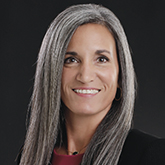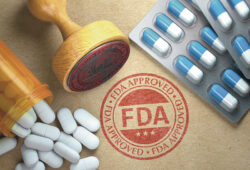Kindred Healthcare quickly & efficiently put strategies in place
The COVID-19 pandemic ushered in a series of challenges unlike any seen before. From staffing issues and employee anxiety to personal protective equipment (PPE) and drug shortages, 2020 forced healthcare systems to overcome obstacle after obstacle. Unfortunately, many challenges are continuing to surface in 2021, which is all the more reason to look at the valuable lessons learned as we move forward.
Kindred Healthcare has worked hard to thrive in the face of these obstacles with thoughtful strategies. Headquartered in Louisville, Kentucky, the healthcare system specializes in long-term acute care hospitals, inpatient rehabilitation services and behavioral health. It employs approximately 23,400 people in 36 states.

In a recent HealthTrust Candid Conversations podcast, Angela Miller, Division Vice President of Strategic Sourcing with Kindred Healthcare, told HealthTrust that a handful of components contributed to the health system’s overall resilience to the pandemic. For one, it took action to quickly procure PPE. In addition, because it had expanded its supply chain operations several months before the pandemic, it was better positioned to tackle shortages. And perhaps most important, the supply chain team continually coordinated with the clinical operations and business analytics teams to keep up with changing protocols, ensuring Kindred’s hospitals and caregivers had product when and where they needed it.
Miller says HealthTrust played a significant role in their ongoing effort. “HealthTrust was like an extension of Kindred’s supply chain team,” Miller says. “They were proactively vetting sources for alternative products and created a wonderful resource under the COVID-19 Member Resource Center.”
Securing product
Due to Kindred’s early sourcing efforts, it quickly accumulated PPE. It moved to a third-party logistics agreement with Owens & Minor and stood up several equipment-transport service contracts, which allowed it to acquire and move product—specifically ventilators—to facilities as needed.
Miller says that although it might seem simplistic, another crucial success factor was following up on open orders each day. “It was extremely important to know if production had been delayed in any way, if shipments had been hung up in customs or if product was in transit, so we could act appropriately with bifurcating orders and securing additional spot-buys if necessary,” Miller says.
Vetting vendors
Kindred’s process for vetting vendors included a question-and-answer session via phone call. This allowed the healthcare system to better understand the company: Was it an authorized distributor, a broker or an agent? Which products were offered, where were they coming from, and what connection did the company have to the manufacturer?
“We ran OIG [Office of the Inspector General] checks on each supplier to ensure there were no exclusions. We clinically vetted items prior to purchase—checking FDA [Food and Drug Administration] claims and certifications and requesting samples for evaluation by our clinical utilization director—and we sought references from other healthcare systems,” Miller says.
Kindred also asked for “proof of life” as needed, which Miller says came into play when suppliers claimed to have products stateside.
Planning for the future
Kindred is focused on getting as close as possible to a normal business regimen in 2021. It continues to rely on its COVID-19 task force, which uses information from organizations like the Centers for Disease Control and Prevention, HealthTrust and the American Hospital Association to guide the company’s business lines and protect patients, employees and the community at large.
Kindred continues to thoroughly screen everyone entering its hospitals and ensures its caregivers have the necessary supplies and equipment needed to safely care for patients.
Although the pandemic has brought about countless challenges, Miller believes there are a few bright spots. She thinks healthcare systems will be better positioned to handle similar obstacles should they arise in the future.
She also believes an important spotlight has been cast on supply chain.
“Relationships with our clinical counterparts and our key operators across the organization have definitely been elevated,” she says. “I feel as though we’ve become a trusted resource to those we serve, and it’s a really good feeling.”
Listen to the full Candid Conversations podcast, Strategic Sourcing & Vendor Vetting.
Share Email Q2 2021





